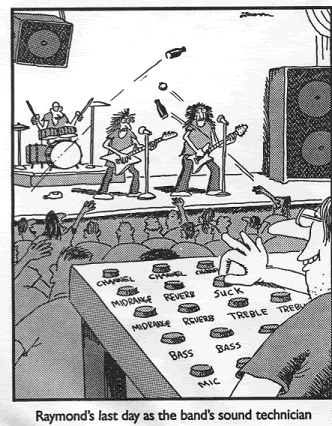Peter made a comment on the liquid metal thread that got me thinking, so I started a new thread.
Most of us have been to see a band that sounded phenomenal live. Their sound man was on top of his game, and the room was just right, etc.
What are some of the factors that make that happen? As a guitar player, what can I do to make that happen more when my band plays out? From a sound technicians perspective, what are some things to think about to make his job easier? Anybody on here think they have some secrets? I don't want to tell the sound man how to do his job, but you're at his mercy basically, and he can really change the experience for the concert goer, so it would be nice to understand a little about his end of things.
Most of us have been to see a band that sounded phenomenal live. Their sound man was on top of his game, and the room was just right, etc.
What are some of the factors that make that happen? As a guitar player, what can I do to make that happen more when my band plays out? From a sound technicians perspective, what are some things to think about to make his job easier? Anybody on here think they have some secrets? I don't want to tell the sound man how to do his job, but you're at his mercy basically, and he can really change the experience for the concert goer, so it would be nice to understand a little about his end of things.





